Blogs Navigation
Sustainable BusinessRecent posts

Financial Health: Driving Growth in Latin America and the Caribbean
According to the latest Global Findex database, the proportion of adults in Latin America and the Caribbean (LAC) with account ownership rose from 39% in 2011 to over 75% in 2025. This increase was driven by the rise of digital-first financial service providers, expanded government transfers, and innovations that enhance the value proposition, such as the growth of e-commerce and instant payment systems in countries like Brazil, Peru, and Costa Rica.

IDB Invest and the New Push for the Private Sector in Paraguay
Imagine investing in a portfolio of projects in a country with sustained economic growth, low inflation, abundant clean energy, and preferential access to a regional market of 270 million consumers. That country is Paraguay, where IDB Invest has committed to mobilizing up to $1 billion to support strategic private-sector projects that drive sustainable development.
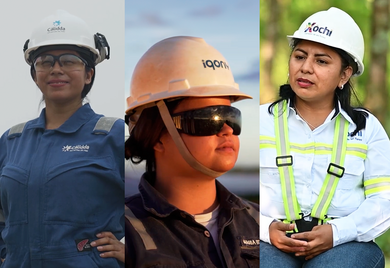
Energy and Transport Infrastructure: Projects Driving Jobs and Transforming Communities
IDB Invest works to boost job creation through the private sector and ensure these opportunities reach areas with the potential to develop new productive sectors and generate formal employment. Financing energy and transport infrastructure projects in Latin America and the Caribbean has been crucial for creating quality jobs and increasing women's workforce participation.
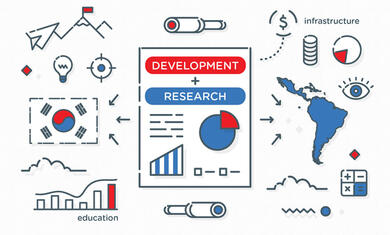
What can the private sector in Latin America and the Caribbean learn from Korea’s economic miracle?
They say that Korea achieved in three decades what it took the Western industrialized countries more than a century to do. But, how did it do that?

Pushing boundaries with blended finance in Latin America and the Caribbean
Every transition, every turning point, moves through critical junctures wherein a slight push determines the success or failure of a transformative proposal. Crossing the frontiers or staying in the same place. This applies to everything, from people to new business models or innovative financial solutions.
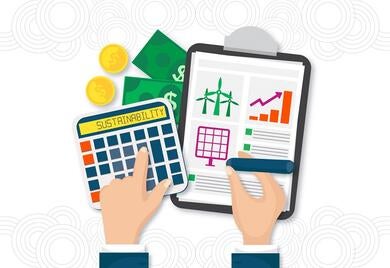
Sustainability makes business sense
Far from being a burden, sustainability is a business opportunity, allowing companies to ensure their continuity and positioning and making them more efficient and profitable.
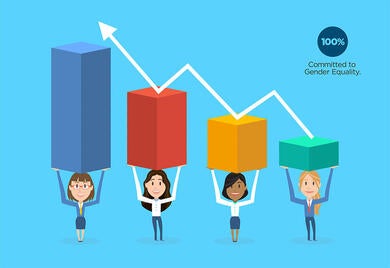
The gender equality imperative in the workplace
Gender equality is paramount for increased inclusion as well as business profitability arising from their increased labor force participation.

Corporate governance: A pathway to sustainability strategy
Good corporate governance is fundamental for the sustainable development of the region.
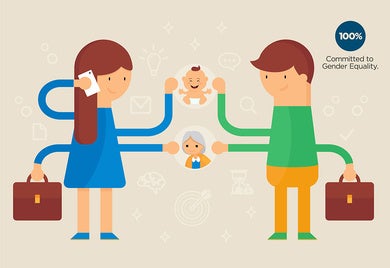
How men and women sharing the workload can promote regional growth
Women do more unpaid work than men, with significant consequences for the economy. From India to Denmark, the pattern is the same. While women invest an average of 4.5 hours per day in unpaid work, men invest barely 1.5 hours. It is estimated that the unpaid work that women do worldwide is equal to $12 trillion a year, or 11% of global GDP for the year 2025. In the case of small businesses in Ecuador, which we analyzed in a study I published recently, we found that the most important factor explaining the differences between the profitability of companies managed by men and women is precisely the time dedicated to unpaid work: household tasks and caring for children and the elderly. This does not mean that women work less in their professions than men. In the sample I studied, men and women invest the same number of hours per day and the same number of days per week in their businesses. But women dedicate a larger number of hours to unpaid work in the home and, to a greater extent than men, also tend to perform many tasks at the same time ― multitasking―combining business activities with household work. There is extensive literature in psychology showing the negative effects of multitasking on performance. The greater the cognitive demand and the effort required to perform a task, the greater these effects. For this reason, we automatically stop talking to our passenger (task 1) when trying to pass a truck on a narrow road or merge onto a highway (task 2). However, when in the study we compare companies with the same characteristics (age of the business, capital, number of employees, sector of economic activity, age and years of education of the manager, etc.), including the time managers devote to the business and to unpaid work, we see that companies managed by men and women are equally profitable. This means that there is enormous economic growth potential if we resolve these disparities. Companies led by women in Latin America and the Caribbean could be an engine of growth for the region if men and women shared household tasks in a more balanced way, but it is difficult to imagine this change happening from one day to the next. On International Women’s Day we want to emphasize the importance of gender equality in the productivity of the region’s companies. Each of us has the task of contributing to this change. At IDB Invest, along with the Inter-American Development Bank, we have been working for more than a year on our campaign 100% Committed to Gender Equality, in which we have explored how public and private sector projects become more productive when they invest in equality. Similarly, at IDB Invest, we have created instruments, like the Women’s Empowerment Principles Gender Gap Analysis Tool (WEPs business gender tool); knowledge products, like our study “The Power of Gender Equality in the Workplace;” and we provide advisory services to help companies improve their gender equality standards. The time for sharing the burden is now and it is key to the growth of our region. Subscribe to receive more content like this! [mc4wp_form]


